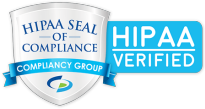Shift Your Focus from Denial Management to Denial Prevention Tactics

Health care providers in the United States lose a significant amount of revenue due to claim denials. According to a study on denial rates, out of $3 trillion in claims submitted by healthcare organizations, $262 billion have been denied, or an average of almost $5 million in denials per health care provider. This number equates to a loss of about 6-8 percent of their total revenue!
While denial management in healthcare is an integral part of revenue cycle management, relying exclusively upon this step can still stifle your cash flow. So, what's a better approach to avoiding denials? Healthcare providers must shift their focus from denial management to denial prevention tactics. Here's how.
Prevention Tactics to Avoid Denials
One of the best methods to deal with denied claims is to prevent them in the first place. Implementation of prevention tactics can be during admission, scheduling, registration, or billing processes. Here are the top prevention tactics you can apply to avoid denied medical claims:
Assess the Scale of the Problem
The best denial prevention strategy is one with a systematic approach that can reduce the denial rate steadily. To design an efficient process, you must measure the problem you currently have involving:
- Rate of claim denials
- Number of appealed claims
- Percentage of denied high-value claims as a % of overall denied claims
Identify and Categorize Causes for Denials
Analyze the reasons for denials and identify the processes that led to them. Denials can stem from several issues during the revenue cycle, but there is often a link to errors on the front-end. From here, you can emphasize your best practices and develop a plan for improvement for those areas causing denials. These are some of the common areas to examine:
- Errors in patient information/registration, access, and eligibility
- Poor and inadequate documentation
- Duplicate claims
- Coding and billing errors; coding changes not updated
- Payer policies and procedures; Payer behavior
- Timely filing issues
- Case management
The next step is to classify and segment your claim denials between preventable and non-preventable denials. Thus, you can focus your efforts on areas where you have an opportunity to avoid rejection.
Create a Task Force Responsible for Overlooking Denial Prevention
The first step is to define roles and responsibilities clearly, who will be involved and at what point in the process they will be involved. Next, ensure that team members participate in effective communication while continuously examining data to identify problem areas and develop solutions.
As a countermeasure against denials, train staff and ensure they take the time to review each claim before submission. Another step before the final submission of the case to the payer is to have another coding manager or an auditor review it. Issues are easier to handle on the front end as opposed to the back end.
Keep Training and Educating Your Staff
As part of your proactive denial management strategy, you need to educate all staff involved in patient care in inputting or verifying patient data. It can be anyone from the front desk staff who enters patient demographics and financial information up to the nurses and doctors recording every patient's medical record.
Education would also involve regular training. For example, coders may require additional training on complex coding denials, and clinical staff may also need more training on clinical validation denials, etc.
File on Time
The majority of health insurance payers demand the submission of medical claims within a specific time frame after service. Usually, insurance companies won't consider claims filed past the deadline, so you'll also need to work overtime to ensure your billings are on time. It is also a good idea to outsource your medical billing to ensure that all your claims are submitted on time.
Improvements in the Documentation Process
Denials are often the result of incomplete or inaccurate documentation. A simple way to help physicians and medical staff better understand the "medical necessity" of documentation is to offer ongoing training. Besides that, you should set up a comprehensive procedure for documentation.
The revenue cycle staff needs to work closely with clinical staff to proactively reduce the number of claims rejected due to a lack of supporting documentation and ensure accurate and relevant patient information before filing claims. By fixing errors immediately, you eliminate downstream denials.
Obtain Prior Authorizations
Secure the required authorizations and update for any clinical changes at all times. Although tedious, it ensures employees have a process in place for capturing it. The method of collecting information about the patient's insurance, checking insurance benefits, referrals, and getting authorizations for the patient takes extra effort but eliminates significant billing time later on.
Implement a system that automatically checks the prior authorization status of every appointment. In addition, inform the staff of the need for approval for in-office services ordered on-site.
Tap Outsourcing Services
Outsourcing companies can help you develop a custom revenue cycle management (RCM) strategy that incorporates denial management. Highly-trained personnel of these companies stay on top of payer rules to ensure accurate claims submission. Medical billing companies help cut down on errors that result in denied claims by promptly reviewing denial and audit data and keeping regular communications with payers.
Partner with DrCatalyst
The importance of a denial prevention strategy cannot be overstated. Have you set up a comprehensive plan for denial prevention in your revenue cycle denial management? If not, then it's best to get expert help from us.
At
DrCatalyst, we help our customers
reduce denials by resolving issues in the front-end processes, identify and fix revenue leakage issues, so your organization's revenue and cash flow stay healthy. Schedule a free consultation with us today.
Useful Links
DrCatalyst | All Rights Reserved.













